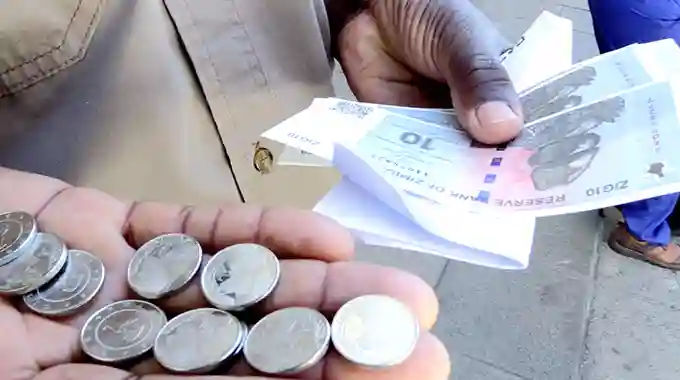The surge in black-market exchange rates, which peaked at around US$1:ZiG25 last week, has forced some businesses in Bulawayo to reject payments in the local currency.
While the official exchange rate remains at about ZiG14 to the US dollar, the soaring parallel market rate has further diminished consumer purchasing power.
According to the Chronicle, some businesses in Bulawayo have resorted to feigning network issues with their point-of-sale (POS) machines as a pretext to exclusively demand foreign currency transactions.
Specific examples include Greens Supermarket and Oceans, two retail outlets in Bulawayo that have allegedly been turning away shoppers attempting to pay electronically in the local currency, claiming their POS systems were not functional.
Mthokozisi Nkosi, the chairperson of the Consumer Protection Commission (CPC), has stated that the Commission will take action against these shops that are unlawfully rejecting the ZiG as a means of payment. Said Nkosi:
We understand technology fails at times. We equally understand that it is serviceable, hence no reason to continuously claim the system is out of order.
Let these businesses be warned that we cannot be bystanders when they flagrantly violate consumer laws.
The law is clear that we are in a multi-currency regime and consumers have a choice on which currency to use as they transact.
We are coming after these unscrupulous businesses. Our Bulawayo office is going to be descending on these rogue elements.
We strongly warn them to stop this practice forthwith.
Confederation of Zimbabwe Retailers president Denford Mutashu said retailers and wholesalers should accept the ZiG. He said:
As CZR, we continue to urge retailers and wholesalers to accept ZiG and not inconvenience customers as we continue to work with the Government in addressing the supply chain challenges impacting sector players negatively.
According to economist Prosper Chitambara, the surge in parallel market exchange rates is a clear indication that businesses are struggling to access adequate foreign currency through official channels. Said Chitambara:
From conversations with people in business they are saying that it is difficult to access foreign currency at the interbank market, so there is a strong demand for US dollars by businesses that are not satisfied by the interbank market.
This creates a lot of pressure on the exchange rate. If one fails to access forex for legitimate business on the interbank market, one is forced to seek recourse to the black market.
Last week, the Ministry of Finance, Economic Development, and Investment Promotion blacklisted 51 contractors, after investigations revealed they were supplying the black market after receiving payment for their services or goods.
More: Pindula News

